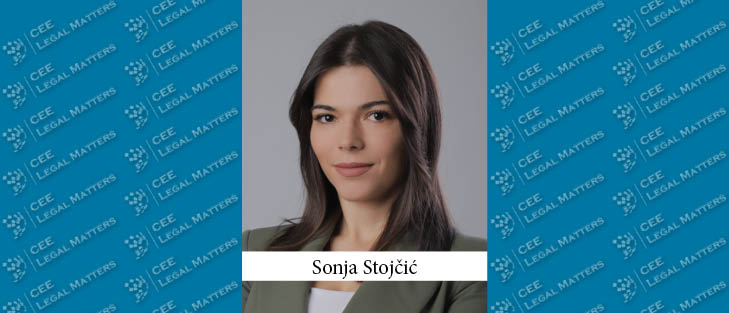In the past few years, Hungary has witnessed accelerated merger trends in the fields of TMT, healthcare, and energy, among others. We reached out to several competition lawyers and spoke about Hungarian merger control regulations and the role of the Hungarian Competition Authority (HCA).
In Praise of an Efficient HCA
In Hungary, we have a very efficient merger control regime,” DLA Piper Co-Head of Competition Zoltan Marosi reports. “The HCA has publicly available information on merger statistics, indicating that the majority of mergers are conducted very quickly.”
“The merger control regime in Hungary is similar to the one applicable at the EU level and in other EU member states, establishing a double threshold for transactions between parties whose turnover exceeds HUF 15 billion and HUF 1 billion,” Hogan Lovells Counsel Akos Kovach adds. “This allows the HCA’s scrutiny to be avoided in insignificant transactions that are below these thresholds. There is a relatively new ‘soft’ threshold, according to which some transactions, which are not caught by the above general turnover thresholds, may still be subject to merger control under certain conditions.”
Deloitte Legal Head of Competition Anna Miks says that “one of the key elements for the efficiency of the HCA is a pre-notification procedure, introduced by the government in 2017. This regime allows parties to discuss potential issues with the competition authority before formally applying. The HCA, on the other hand, notifies parties if some additional documents are needed for the merger.” According to her, “previously, it was necessary to file a formal notification and, if the authority had any questions, the inquiry would also be submitted through a formal procedure, which was a rather complicated process.”
Lakatos Koves and Partners Partner Ivan Solyom adds that – while the pre-notification procedure itself adds to the process – it allows parties to provide the full information in advance to filing the application formally, and to receive additional requests and questions through an informal procedure. “It is a good tool to avoid lengthy investigations and, as a result, the formal procedure is relatively short,” Solyom says.
“In exceptional cases, a merger clearance takes place through the rather more complicated phase two of assessment,” Marosi adds. “This only applies to very complex cases, where an in-depth assessment of the competitive market is needed. However, the vast majority of cases are decided through a simple procedure.”
“From my experience on multi-jurisdictional transactions, where we had to notify many different competition authorities,” Kovach points out “that Hungary has always been in the first couple of countries to give clearance for cross-border transactions. The average period for issuing clearances is actually three to five days,” he says, noting that this applies to non-problematic mergers. “The HCA reported that, in 2021, 92% of the decisions were adopted through the so-called fast-track procedure,” Kovach explains.
The Jolly Joker of Hungarian Competition Law
While the efficiency and flexibility of the Hungarian merger control regime are frequently acknowledged by the lawyers we spoke with, the special regime related to mergers of national strategic importance is a rather more controversial subject.
“The government can decide by a decree that certain mergers of special importance are exempted from the scrutiny of the HCA,” Marosi points out. “Such cases, altogether 36 as of today, generally involve big mergers and catch wider media attention. This special regime, sometimes referred to as a ‘Jolly Joker of competition law,’ is frequently applied to mergers in the TMT and healthcare sectors, and usually, but not always, is related to acquisitions by the Hungarian state or state-owned companies.”
Szecskay Attorneys at Law Partner Aniko Keller explains the background and rationale of the regulation granting exemptions from merger control. “In 2013, an amendment to the Hungarian Competition Act was introduced. According to this law, ‘the Government may, in the public interest, in particular, to preserve jobs and to assure the security of supply, declare a concentration of undertakings to be of strategic importance at the national level,’ while ‘such concentrations shall not be subject to the obligation of notification to the HCA.’”
According to Keller, this is not unique to Hungary or the EU. “In all jurisdictions, competition law sometimes needs to give way to other overriding interests. Public interest regimes are widely discussed in legal literature,” she says. “International organizations such as the OECD also acknowledge that public policy objectives will require exemptions when public interest considerations take priority,” she adds. Keller reports there are two main models regarding mergers of national strategic interest. “Under the single authority model, the assessment made by the competition authority includes the public interest aspect, while under the dual responsibility model sectoral regulators or political decision-making bodies (such as ministries) have such competence. The Hungarian regime follows the dual responsibility model, where the government decides the merger control exemption ex-ante, without the involvement of the HCA.” Keller also points out that, prompted by a question, “Margrethe Vestager (on behalf of the European Commission) confirmed in the European Parliament that it is not contrary to EU law for national merger regimes to allow national authorities to take into account public interest considerations when reviewing mergers.”
A Rather Blurry Line
Keller says the challenge in fact lies in defining what constitutes public interest as, “in the end, there is no universal definition of the term, and various jurisdictions define it differently.” According to her, “there are general and specific considerations. Certain countries take into account economic considerations, the international competitiveness of domestic businesses, while others focus on the protection of the environment or the preservation of jobs. In Hungary, the government has the discretion to decide what public interest means.” She points out that “the amendment does not have an explanatory note about the definition of the public interest or any indications on how the government should apply this concept.” However, Keller adds, “this is not a unique uncertainty related to Hungary, but rather a challenge on an international level.” For her, “the line is not always clear when it comes to industrial policy, as most governments want to support so-called national champions.” As an example, she points to the 2019 “stand-off between the European Commission on one side and the French and German governments on the other. The Commission blocked the merger of two railway signaling operators because it found the deal anti-competitive. The French and German governments were not happy with this as they considered it important to create a strong European champion to compete with Chinese rivals.”
“The wording of the text is not very detailed,” Kovach emphasizes, “as it only refers to safeguarding employment and the security of the supply chain.” He notes that “this is a vague explanation, rendering it, to an extent, the exclusive discretion of the government to decide what constitutes such interest. This is rather a political decision, as the HCA is not involved in such decisions.” According to him, EU member states may have similar legislation, however with a narrower scope protecting their legitimate public interests. “In the absence of a detailed framework, there is no guarantee that the government’s decisions will always fulfill the relevant public interest criteria,” Kovach says, noting that the regulation might be considered as “too soft and too broad.”
Wolf Theiss Partner Janos Toth compares how the public interest concept is used in other EU jurisdictions. “It is true that in countries such as France or Portugal the government has had the power to provide special merger control exemptions for transactions carrying public interest considerations, and in some others, such as Germany, Italy, or Spain, the government can clear an already blocked merger based on public interest considerations,” he says. However, he points out, “in such countries, the criteria for such exemptions have been prudently developed and judicially tested over the years. The relevant legislation usually establishes narrowly tailored circumstances and reasons that allow the government to make exemptions and interpret public interests.” In Hungary, on the other hand, he says “there are doubts as to whether the way the regulation is crafted and then exercised indeed allows for those public interest considerations to genuinely prevail.”
Another problem for competition lawyers is related to the fact that the government’s decrees tend to have insufficient reasoning, with Marosi and Toth saying a more detailed reasoning for its decisions would be welcome. “The government’s decrees frequently only provide a very short explanation for why a merger should not be subject to HCA scrutiny,” Marosi says. “The reasons why the government applies a special regime to a transaction often appear not to be truly substantiated,” Toth adds. “And the outside observer immediately starts to wonder what might lay behind such exemptions, especially when they are applied to some of the most prominent transactions.”
For Toth, one of the major drawbacks of the current legislation in Hungary is the inability to appeal such decisions: “In other jurisdictions, in addition to the most carefully crafted legislation, market participants can challenge the exemption decisions through an independent judicial review. This is a normal process to ensure that checks and balances are well applied.” He points out that “this is not the case in Hungary, apparently, where courts cannot interfere – as the government’s decree is not subject to any appeal.” He emphasizes that “challenging the constitutionality of such dedicated decrees, or appealing to European fora, is not a relevant alternative to normal judicial review.”
For Keller, exemption from the merger control procedure is a question of public policy and not so much a legal one. “I understand that the government’s decision in some countries may be subject to judicial review, but it is extremely difficult to ask a court to adjudicate on whether something is or isn’t public interest. The notion of public interest varies from country to country and depends on social, political, and cultural context.” In that regard, Keller highlights that the “The Constitutional Court of Hungary also reviewed the matter, establishing that public interest is what the government deems to be such, and it cannot be determined by the constitutional court.”
Efficient or Abusively Protectionist Tool?
As a result of the government being able to declare a merger to be strategically important under the Hungarian Competition Act, Solyom says “there are a number of mergers taking place without being subject to the scrutiny of the competition authority, typically in sectors such as TMT, the medical sector, energy, financial services, and the like.” He emphasizes that “the law does not allow any tools for the intervention of the HCA in such a case” and explains that is because “the government’s consistent strategy has been to strengthen their influence in these areas, and the law is likely to remain in force unless the government makes a political decision to change its strategy.”
Toth considers that the merger control exemption mechanics in Hungary should perhaps be considered in a broader context, with Hungary’s recent FDI screening regulations serving as the flipside of the same coin. “In Hungary, FDI screening regulation has been applied since January 2019 and was initially intended to apply to investors outside the EU and EEA. Prior to that, the investment regulatory environment in Hungary was most open, and only required regulatory consent in those typically regulated industries, such as banking or energy.” Toth says that, “at that time, merger control was confined within professional boundaries, rather than affected by the suspicion of any political interference. Then FDI screening legislation was amended and completed with a broader FDI screening regime to capture all EU and non-EU investors, as the government claimed that the pandemic situation required stricter screening of FDIs.”
For Toth, “these two regulations together granted the government an efficient regulatory toolkit to either allow or simply reject certain transactions.” He points out that, “looking at the history of such exemptions, in all instances, Hungarian investors got exempted from merger control requirements, while it has been unreasonably complicated for foreigners to conclude prominent acquisitions in Hungary, if not impossible.”
Miks does note that, since the exemption from merger control is related to very special cases, the vast majority of clients do acknowledge its existence, but they also know that this possibility is not available for most mergers.
Still, Toth believes that “merger control exemptions should be reserved for exceptional instances and applied in line with genuine public interest policies. Otherwise, it is seen by market investors as an abusively protectionist tool in the hands of the government to create national oligarch monopolies.” He points out that this will carry very severe effects on the impression foreign dealmakers have of Hungary, “far distant from where the country has been positioning itself.”
This Article was originally published in Issue 9.3 of the CEE Legal Matters Magazine. If you would like to receive a hard copy of the magazine, you can subscribe here.














